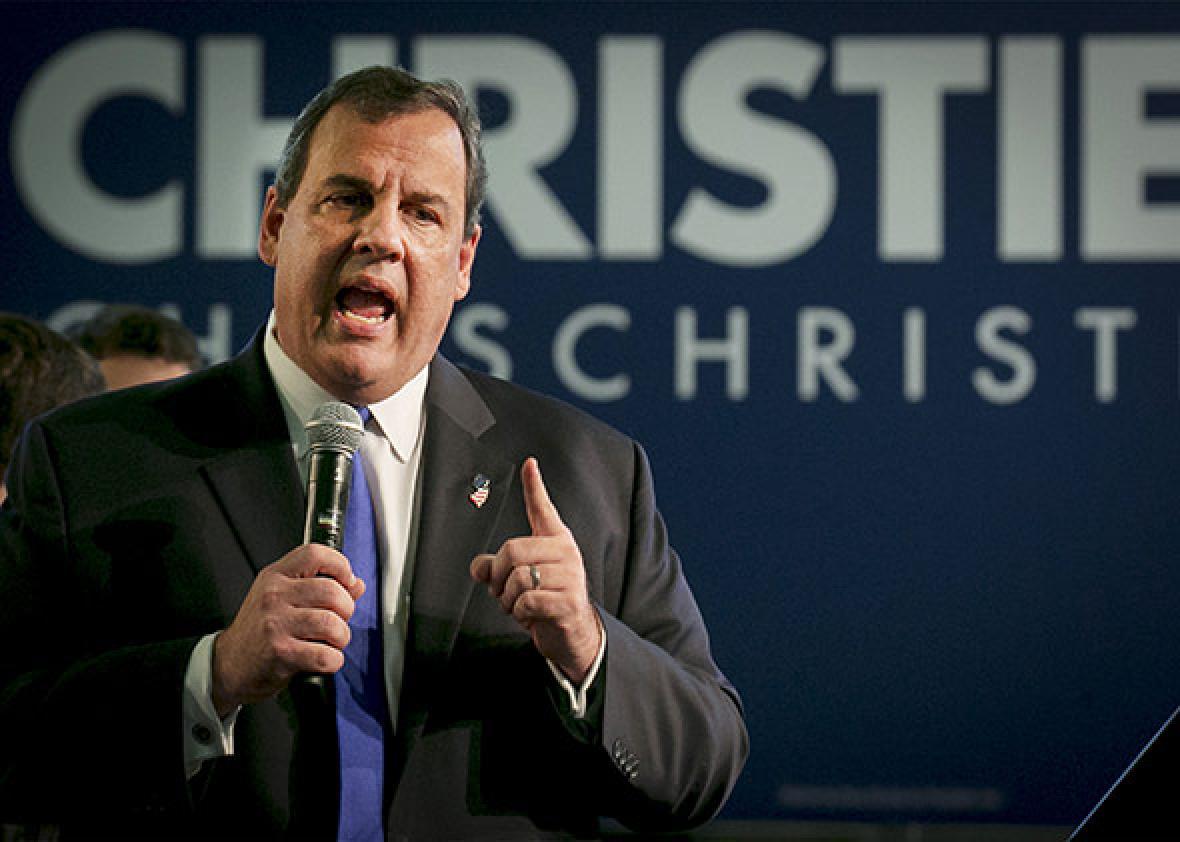New Jersey Gov. Chris Christie has launched a “telling it like it is” campaign for president. It’s his theme. “I mean what I say, and I say what I mean, and that’s what America needs right now,” he says. The appeal of such a campaign is obvious. Voters are fed up with politicians who ladle out small doses of pap. Christie is presenting himself as an antidote to the voluminous and meaningless talking points.
But here’s the problem with such a campaign: Embedded in the boast is the undoing of the boast. Regardless of what you think of Christie or his policies, any politician who says he is telling you the truth is almost certainly engaging in a deception.
When you “tell it like it is,” you are suggesting that you’re unimpeded by spin, calculation, or narrative creation—all the things that make other politicians lesser beings. But (in truth) you’re making a calculated pitch to seem like you’re not calculating, which is a claim that eats itself. Secondly, “telling it like it is” suggests that you’re breaking new grounds of candor—it raises the bar beyond merely telling the truth. You’re saying things that stop the conversation. For example, a traditional politician would say, “We are working to encourage our coalition partners in Iraq.” A candid politician would say, “The Iraqi army is a mess.” A politician telling it like it is would say, “We’re putting American lives at risk for a failed strategy in an ungovernable country.”
Perhaps this is what Christie is going to offer, though that’s unlikely. He has offered some policy proposals about modifying Social Security that have caused his opponents to criticize him, but that is more of a sign of the emptiness of political debate, not unprecedented candor. So it’s more precise to say that Christie is “telling it like it is (by today’s standards).” Christie may not be truth teller and may still be more candid than his opponents.
For those taking a candor reading at home when determining their vote, you’ll have to decide how much to deduct for using candor as a stratagem (rather than using candor as a way to deliver a deeper truth). You may also want to weigh that Christie is also using candor as a way to soften the criticisms against him. I’ve spoken to voters who worry about his temperament and his tendency to bully those who disagree with him. Christie’s defense against these charges is that if he’s a little brusque it’s just in the service of that noble goal of “telling it like it is.”
The lure of authenticity and truth telling is embedded in the history of the presidency. The story of George Washington coming clean about chopping down the cherry tree wasn’t true, but it told us something about what we wanted to see in a president. After Watergate, Jimmy Carter repeatedly promised the country on the campaign trail, “I will never lie to you.” Sen. John McCain called his campaign bus the Straight Talk Express. As a candidate, Barack Obama promised in 2008 that he was telling hard truths, but he never really told that many. Part of Sen. Bernie Sanders’ appeal among voters is that he isn’t scripted and says things voters have longed to hear.
All these candid candidates are trying to approximate President Truman. In the election of 1948, Truman embarked on an extemporaneous speaking style that was new for him, and it delighted the press and some in his audience. He trained a lot of his fire at Republicans, but he also gave it to the voters right in the kisser. “If you send another Republican Congress to Washington, you’re a bigger bunch of suckers than I think you are,” Truman told voters. “Two-thirds of you stayed home in 1946 and look at what Congress we got! That is your fault, that is your fault!” He didn’t just do this regularly during his 33-day whistle-stop train tour, he did it at the Democratic convention when he accepted the nomination. “If farmers don’t do their duty by the Democratic Party, they are the most ungrateful people in the world! … I say to labor what I have said to the farmers; they are the most ungrateful people in the world if they pass the Democratic Party by this year.”
It’s hard to imagine any politician saying anything remotely that abrasive about voters he wanted to vote for him. Well, that’s not exactly right. Donald Trump, it would seem, has that kind of free expression in him. He appears to be engaged in a kind of candor experiment with the purpose of unwinding his business relationships. Univision, NBC, Macy’s, and Serta have cut their ties with him after his remarks about Mexicans. What would Christie say about Trump? That’s a real test of whether a politician can tell it like it is.
